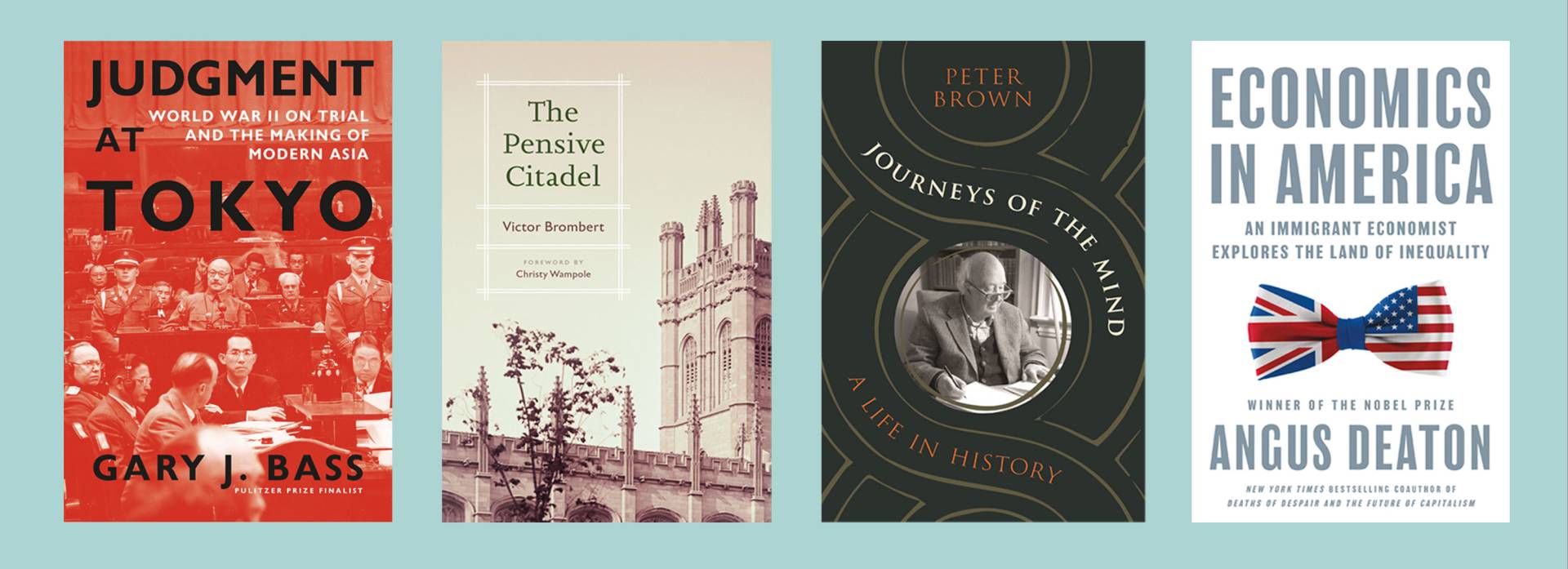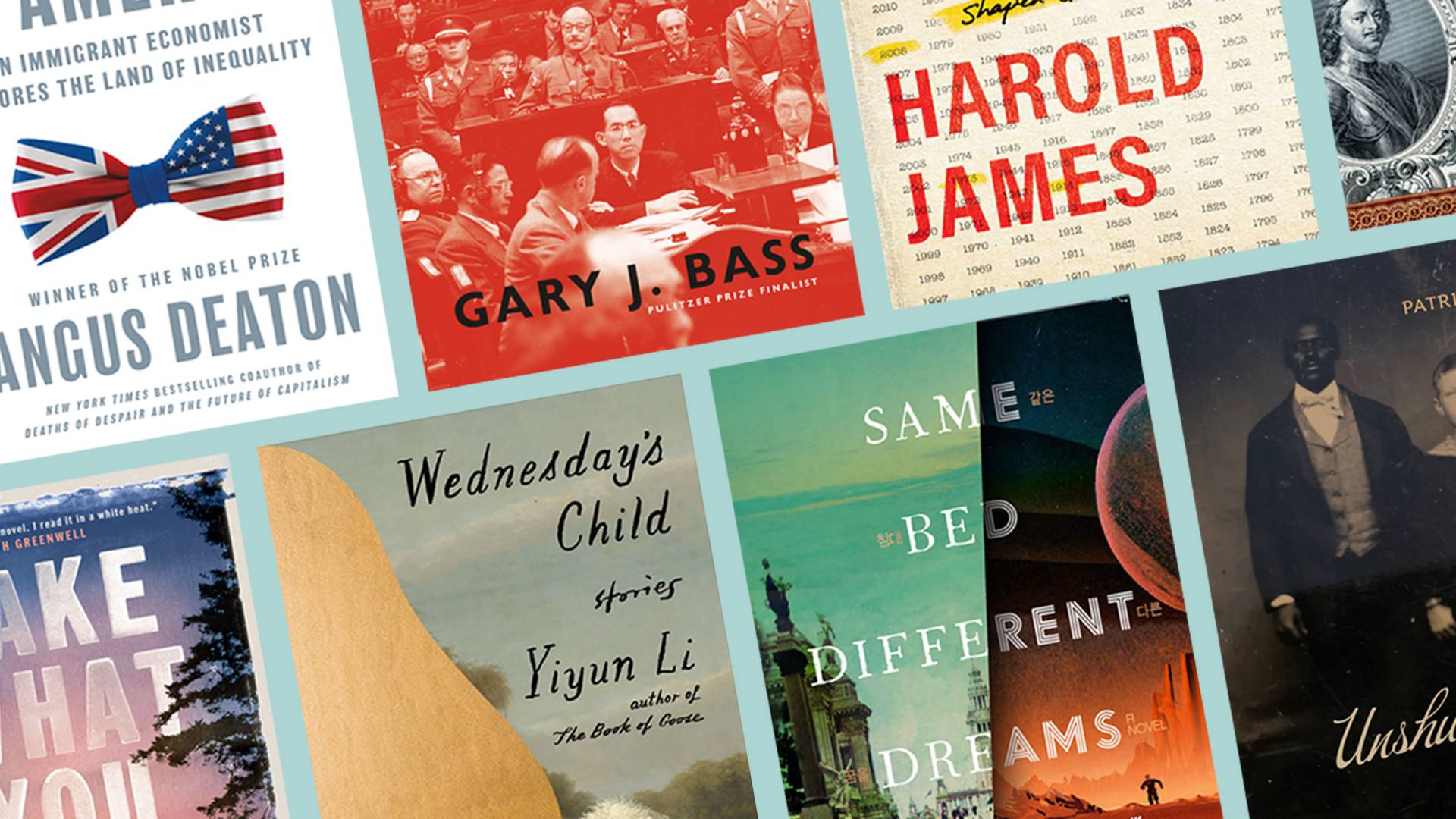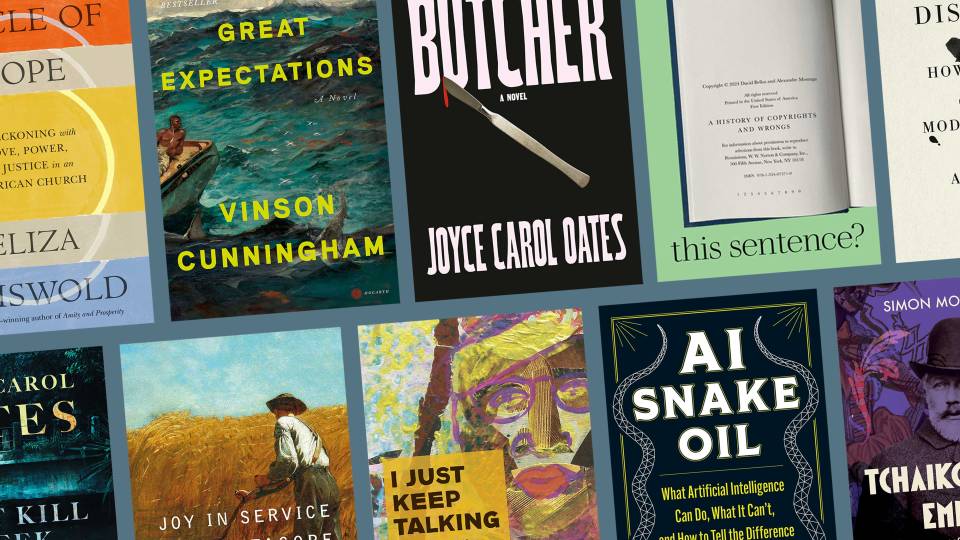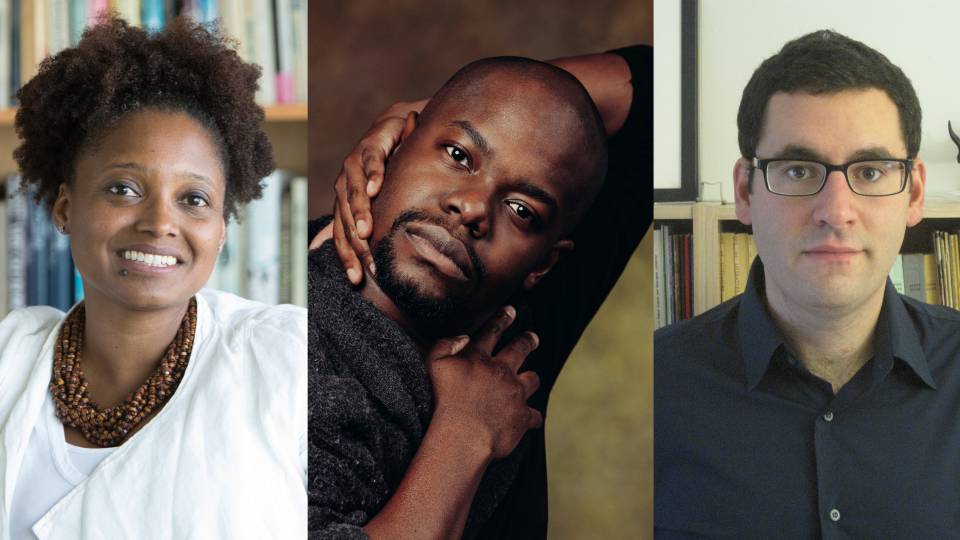These 14 books by Princeton professors have all been selected for at least one 2023 year-end “best of” list. Whether you’re looking for a title to buy for a friend or to treat yourself, they check every box: novels, memoir, history, short stories, poetry, essays and nonfiction.
For more ideas, consider these University resources: the Humanities Council’s Faculty Bookshelf, the Lewis Center for the Arts’ Featured Faculty Publications, and the School of Public and International Affairs’ Faculty Books and Awards compilation.

“Judgment at Tokyo: World War II on Trial and the Making of Modern Asia” (Knopf), by Gary Bass, is included in The Washington Post 10 Best Books of the Year, The Economist Best Books of 2023 and The New York Times 100 Notable Books 2023, to name just a few. The Post calls it a “comprehensive, landmark and riveting book.” Bass is the William P. Boswell Professor of World Politics of Peace and War, and professor of politics and international affairs. The School of Public and International Affairs website has a story about the book and its genesis.
“The Pensive Citadel” (University of Chicago Press), a collection of essays by Victor Brombert about his life in letters, is included in The New Yorker Best Books 2023, which says the author “pairs a gravity of human experience with a tender love for regarding it.” Brombert, who recently turned 100, is the Henry Putnam University Professor of Romance Languages and Literatures and Comparative Literature, Emeritus. The foreword to his book is written by Christy Wampole, professor of French and Italian.
“Journeys of the Mind: A Life in History” (Princeton University Press), by Peter Brown, is included in History Today’s Books of the Year 2023 and the Times Literary Supplement’s Best Books of the Year 2023. TLS critic Richard Davenport-Hines calls it, “The most exciting book that I have read this century … immaculately written, radiant with wisdom, generous, grateful and gladdening.” Brown is the Philip and Beulah Rollins Professor of History, Emeritus.
“Economics in America: An Immigrant Economist Explores the Land of Inequality” (Princeton University Press), by Nobel laureate Sir Angus Deaton, is included in the Financial Times’ Best Books of 2023-Economics and the Times Literary Supplement’s Best Books of the Year 2023. TLS critic Paul Collier calls Deaton "one of the profession’s giants" and his book "a milestone in restoring the profession to the family of human sciences.” Deaton is the Dwight D. Eisenhower Professor of International Affairs, Emeritus, professor of economics and international affairs, emeritus, and senior scholar.

“Poverty, by America” (Penguin Random House), by Matthew Desmond, is included in TIME 10 Best Nonfiction Books of 2023, NPR Books We Love 2023, Esquire 20 Best Books of 2023, New York Magazine’s Best Books of 2023 and more than a dozen others. “Desmond delivers a radical vision: a book that urges us to abandon old ways of thinking and dream a new path forward,” Esquire says. Read a Q&A about the book with Desmond, the Maurice P. During Professor of Sociology, from the University homepage.
“Seven Crashes: The Economic Crises That Shaped Globalization” (Yale University Press), by Harold James, is included in the Financial Times’ Best Books of 2023-Economics. James is the Claude and Lore Kelly Professor in European Studies, and professor of history and international affairs. His exploration of economic crises from the mid-1800s through the COVID lockdowns makes for a “fascinating book," writes Financial Times critic Martin Wolf.
“How Data Happened: A History from the Age of Reason to the Age of Algorithms” (W.W. Norton), by Matthew Jones, co-authored with Chris Wiggins, is included in The New Yorker Best Books 2023, which calls it a “fascinating history of data science." Jones is the Smith Family Professor of History.
“Wednesday’s Child: Stories” (Macmillan), by Yiyun Li, is included in The New Yorker Best Books 2023, NPR Books We Love 2023, New York Magazine’s Best Books of 2023, and Esquire 20 Best Books of 2023, among many others. Esquire calls it “a dazzling new collection about the themes that have always obsessed her: loss, longing, and loneliness. Li is professor of creative writing in the Lewis Center for the Arts and director of the Program in Creative Writing.
“The Lost Wife” (Knopf), a novel by Susanna Moore, is included in The Wall Street Journal 10 Best Books of 2023 and the New Statesman Books of the Year 2023. Wall Street Journal critic Anna Mundow writes: “The novel smoothly integrates teeming historical detail into a breakneck narrative, giving this short book the density and breadth of a work three times its length.” Moore is a lecturer in creative writing, Lewis Center for the Arts and Freshman Seminars.

“Take What You Need” (Viking), a novel by Idra Novey, is included in The New Yorker Best Books 2023, NPR Books We Love 2023, The New York Times 100 Notable Books 2023, the Los Angeles Times 13 best novels (and 2 best short story collections) of 2023, and The Boston Globe 55 Books We Loved in 2023, among others. Princeton colleague Yiyun Li recommends Novey's “brilliant and fierce” work in The Guardian’s Best Books to Give as Presents This Christmas, along with Anne Enright’s “The Wren, The Wren.” Novey is a lecturer in creative writing, Lewis Center for the Arts.
“Same Bed Different Dreams” (Penguin Random House), a novel by Ed Park, is included in The Washington Post 50 Notable Works of Fiction, Publishers Weekly Top 10 Books of 2023, and The New York Times 100 Notable Books 2023, to name just a few. The Post calls it “a supremely cool novel, commanding an eye-popping array of cultural references.” The book was also named among The New York Times’ five best audiobooks of the year. Park is a lecturer in creative writing, Lewis Center for the Arts.
“The Ruble: A Political History” (Oxford University Press), by Ekaterina Pravilova, is included in History Today’s Books of the Year 2023. “[T]his is how economic history should be done,” writes Pravilova’s Princeton colleague Peter Brown. Pravilova is the Rosengarten Chair of Modern and Contemporary History, professor of history, and director of PIIRS’ Program in Russian, East European and Eurasian Studies. Read a Q&A with her about the book on the Humanities Council website.
“Unshuttered: Poems” (Northwestern University Press), by Patricia Smith, is included in the New York Public Library’s Best Books of 2023, which praises it for “an intimacy with the past that resonates long after its pages are shut.” Smith is a professor of creative writing in the Lewis Center for the Arts.
“The Life and Death of States: Central Europe and the Transformation of Modern Sovereignty” (Princeton University Press), by Natasha Wheatley, is included in the New Statesman Books of the Year 2023 and Just Security Year-End Book Recommendations 2023, an online forum based at New York University’s School of Law. New Statesman critic Quinn Slobodian recommends it for addressing one of the “most urgent” questions of our times: “who gets to claim what patch of the Earth and why.” Wheatley is an assistant professor of history.
Mary Cate Connors, communications manager for the Humanities Council; Lisa Kraege, a graduate student in English; and Jaclyn Sweet, communications associate, Lewis Center for the Arts, contributed reporting for this story.







